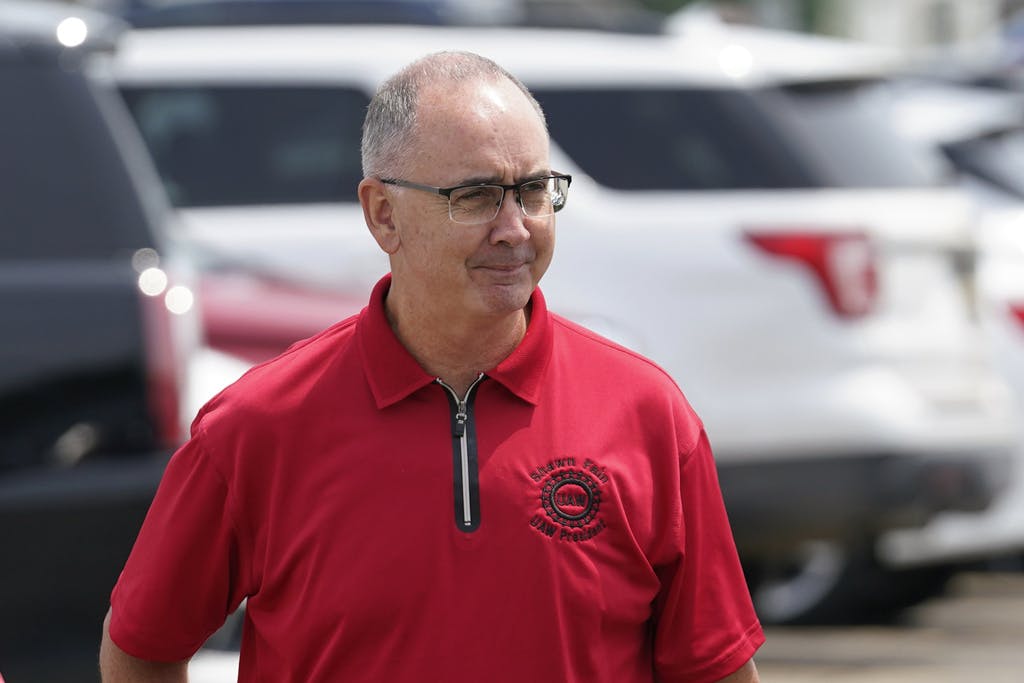The Sun to the Auto Workers — Solidarity Forever
If big labor wants to extricate its members from the ravages of inflation, the right common cause is monetary reform and a return to honest money.

Are America’s labor unions waking up to the need to restore honest money? “Inflation has been hammering us,” the head of the United Auto Workers, Shawn Fain, said as the union voted to green light a strike against the three major car makers. He noted that “our wages have regressed over the last 10 years,” and that decline is seen “in the price of bread, in the cost of milk.” The Union is demanding raises of 40 percent. The real inflation fix, though, is to end fiat money.
If that’s where he’s headed, we’ll be singing Solidarity Forever. Mr. Fain, the Washington Post reports, reckons inflation is causing his union members to fall “further and further behind.” Hourly wages — ranging between $18 and $32 — are running “about $10 lower than what they would be had they kept up with inflation since 2007,” the union contends. The decline in wages is even more pronounced when seen in terms of the real basis of monetary value.
At the beginning of 2007, the dollar was worth about a 600th of an ounce of gold. Today its value has plunged by some two-thirds, to a little less than a 1,919th of an ounce of the monetary metal. So, if the average hourly wage for union automakers was $28 per hour in 2007, as Los Angeles Times estimated, the auto employees would be earning an average of just under $90 an hour today if their wages were keeping pace with the current gold value of the dollar.
No wonder Mr. Fain is suggesting to his members on the assembly lines that “this is our time to take back what we’re owed.” The rhetoric from Mr. Fain — who was elected as head of the union in March, vowing to take a “more aggressive approach” — reflects a rising concern among labor unions about the impact of inflation on wages. “Real wage growth,” Vox reports, “representing actual purchasing power, has stagnated since the 1980s.”
“We’re fed up,” Mr. Fain says in remarks to Reuters. The union chief frames the problem as a matter of class warfare. He balks that “we’ve sat back for decades while these companies continue to just take and take and take from us.” It would be more accurate to pin the blame on monetary policy. The stagnation of wages, after all, coincides with the removal of the historic link between the dollar and gold in 1971.
That decision by President Nixon closed the so-called Gold Window, under which dollars presented to America by foreign governments were required to be redeemed at a 35th of an ounce of gold. This was the foundation of the Bretton Woods agreements that sparked some 25 years of post-World War II prosperity — including wage growth and price stability — across the West, and particularly for America.
The abandonment of the last vestige of the gold standard ushered in the era of fiat currency, in which prices and wages appeared to soar, while the value of the dollar has plummeted more than 98 percent in terms of gold, creating what we have described as “the illusion of wealth.” This is the context for reports, like the one recently in CNBC, noting that “wages in the U.S. have stagnated since the early 1970s” — and noting the demands by unions for higher pay.
The stagnation of wages was one of the issues that in 2016 President Trump rode all the way to the White House. On the hustings he lamented that “real wages for our workers have not been raised for 18 years.” He vowed “we are going to make America rich again.” Yet his approach was not merely to pressure companies to raise wages, as the UAW seeks today. Instead, he saw lower taxes and less regulation as the path to generating higher growth.
Today, the UAW is pushing for raises while opting to “withhold its endorsement” of Mr. Biden, the Times reports, partly due to the president’s green vehicle push. Yet a UAW regional director, David Green, says he cannot “support any endorsement of Donald Trump,” even if the 45th president’s “rhetoric is contagious among our members.” It’s a signal that for 2024, there’s an opportunity to make with American labor common cause for honest money.

